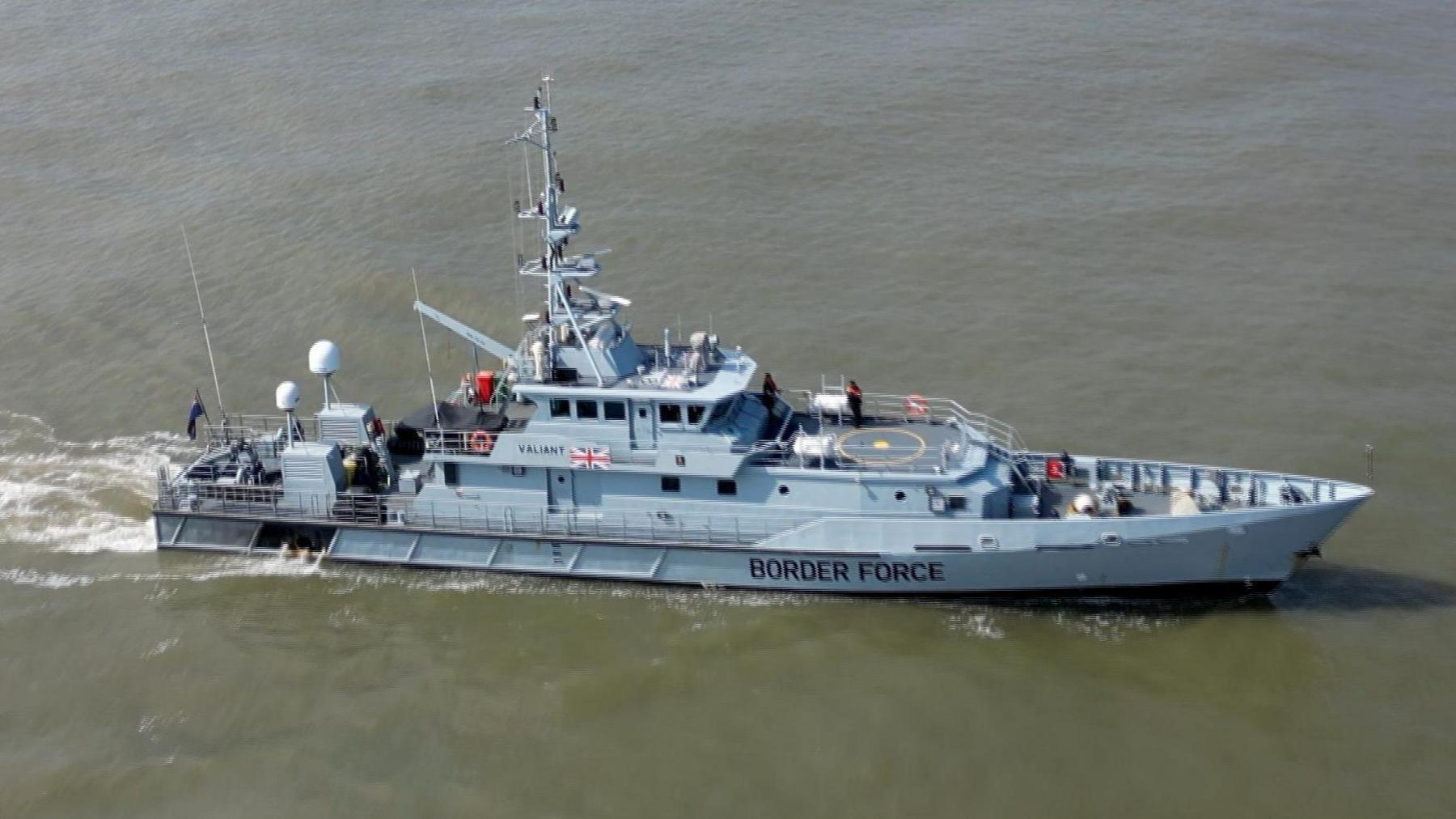'Record drug seizures only scratch the surface'
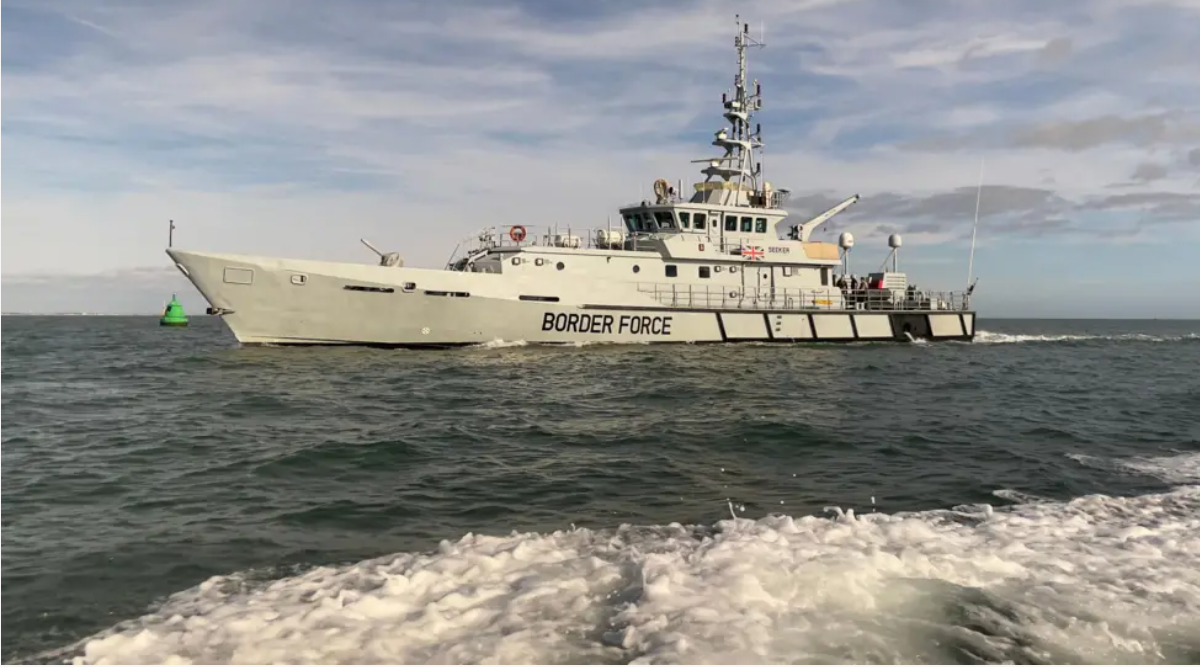
HMC Seeker, a Border Force cutter that intercepts drug gangs in the English Channel
- Published
A "record-breaking summer" of cocaine seizures by Border Force "only scratches the surface", according to the head of a Kent drug rehabilitation charity.
The government agency said it had seized £1bn worth of the class A drug between June and August - more than half the total seized in the whole of 2024.
Home Office minister Mike Tapp, the Dover MP, said work to disrupt the drugs trade was "truly heroic".
Penny Williams, chief executive of the Kenward Trust in Yalding, welcomed the disruption to supply chains, but said more education in schools was needed to prevent addiction to drugs.
Drugs gangs are using fishing boats, yachts and commercial vessels to smuggle drugs into the country, but are also using a tactic called at-sea-drop-offs.
A BBC South East investigation has discovered that over 5.7 tonnes of cocaine was intercepted by Border Force after being dropped into UK territorial waters over two years.
South American drug gangs are dropping the drugs in the sea around the UK to be picked up by smaller boats and brought to shore.
Officials say drugs are being wrapped in flotation devices equipped with trackers, allowing gang members to retrieve them.
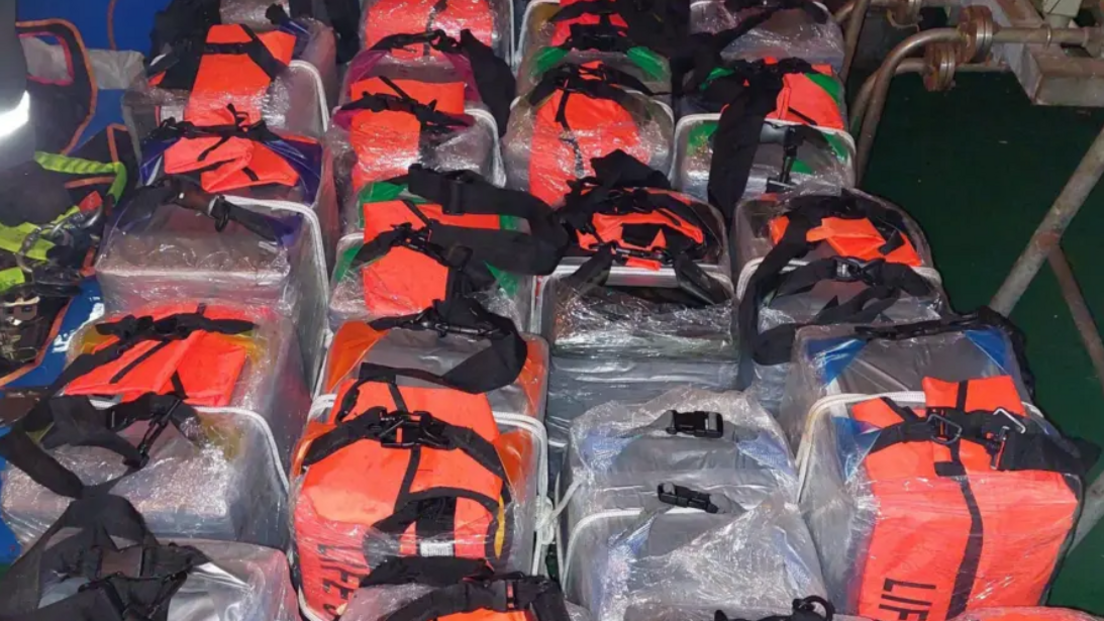
Cocaine bundles are dropped into the ocean with trackers hidden inside, allowing members of the organised crime gangs to locate them at sea
Penny Williams, whose organisation runs a residential rehabilitation centre and carries out drugs awareness talks in Kent schools, said they were seeing the impact first hand.
"The volume of cocaine entering the UK is fuelling a cycle of dependency that services like ours are working hard to break, but we need more support across the system," she said.
Ms Williams said more education was urgently needed to help prevent drug use before it starts.
'Families torn apart'
"While limiting supply can drive up prices and potentially reduce casual use, it doesn't address the deeper addiction issues, and people often find ways of accessing substances regardless of the cost," said Ms Williams.
"We are seeing the fallout every day, cocaine use is increasingly normalised and the sheer availability means more people are reaching crisis point faster.
"The damage isn't just physical either, it's emotional, relationships are suffering, families are being torn apart and individuals are arriving at rehab with more complex needs than ever before."
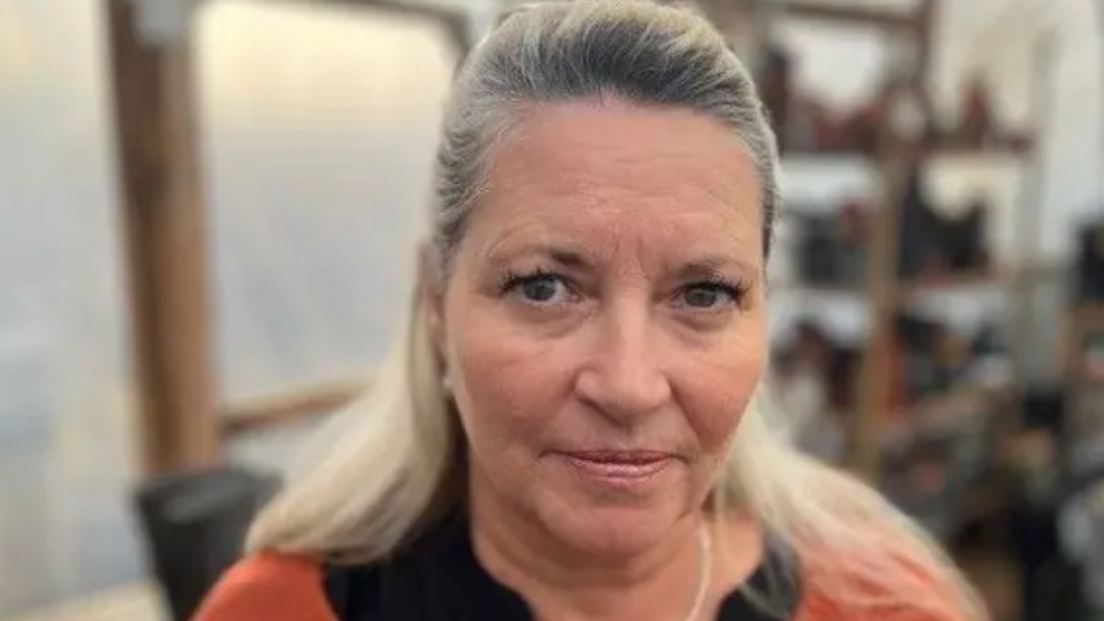
Penny Williams, who runs a rehab facility, says cocaine use has been normalised
Government figures showed the number of cocaine-related deaths in England and Wales rose by 31% between 2022 and 2023.
Medway GP Julian Spinks said the amount of cocaine coming in made him sad and angry.
He told BBC South East about the damage caused by long-term use of the drug.
"Like many drugs it may initially appear not to be causing problems, but as dependency and chronic use develop, we see mental health problems," he said.
"The over-stimulation can lead to heart damage. Finally we see the impact of financial and social effects."
The Home Office said improved intelligence sharing meant the National Crime Agency and Border Force were "inflicting major blows on organised crime".
Neil Woods, of Law Enforcement Action Partnership, which campaigns on drugs policy and policing, said: "It's a clear indication of an increase in the volume of the market."
He said street prices of cocaine were "plummeting", with the drug being imported in more pure forms and demand remaining high.
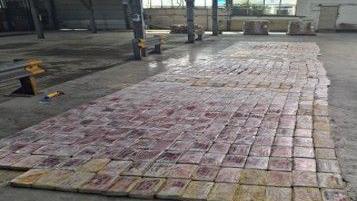
One tonne of cocaine seized in Dover this year
Tapp described the total quantity of cocaine seized during the summer as a "really fantastic haul".
He played down worries that record seizures could indicate that more drugs are actually getting into the country.
"It's really difficult to quantify exactly how much comes in but it doesn't mean we stop - we're determined," he said.
Yachts smuggling people
Mr Tapp also told the BBC that the Home Office was on the front line dealing with small boats and people smugglers as well as drug smugglers.
He was speaking on board a Border Force cutter vessel in the English Channel, where the crew had described a recent interdiction of a yacht suspected of bringing people into the country illegally.
"The focus and priority for the Home Office is stopping those boats and bringing down illegal migration," he said.
Unlike the small boat crossings in the Channel, smugglers have also attempted to smuggle people into the UK undetected through small harbours and marinas.
Lucy Moreton, from the Immigration Services Union, said there were a number of reasons why smugglers use clandestine methods of entry, such as "if you want to bring people in for modern slavery or for the sex trade".
"Maybe you've been here before, maybe you're subject to a deportation order, maybe you want to come into the UK and not be detected, because you want to be involved in something that is criminal," she added.
Follow BBC Kent on Facebook, external, on X, external, and on Instagram, external. Send your story ideas to southeasttoday@bbc.co.uk, external or WhatsApp us on 08081 002250.
Related topics
- Published9 October
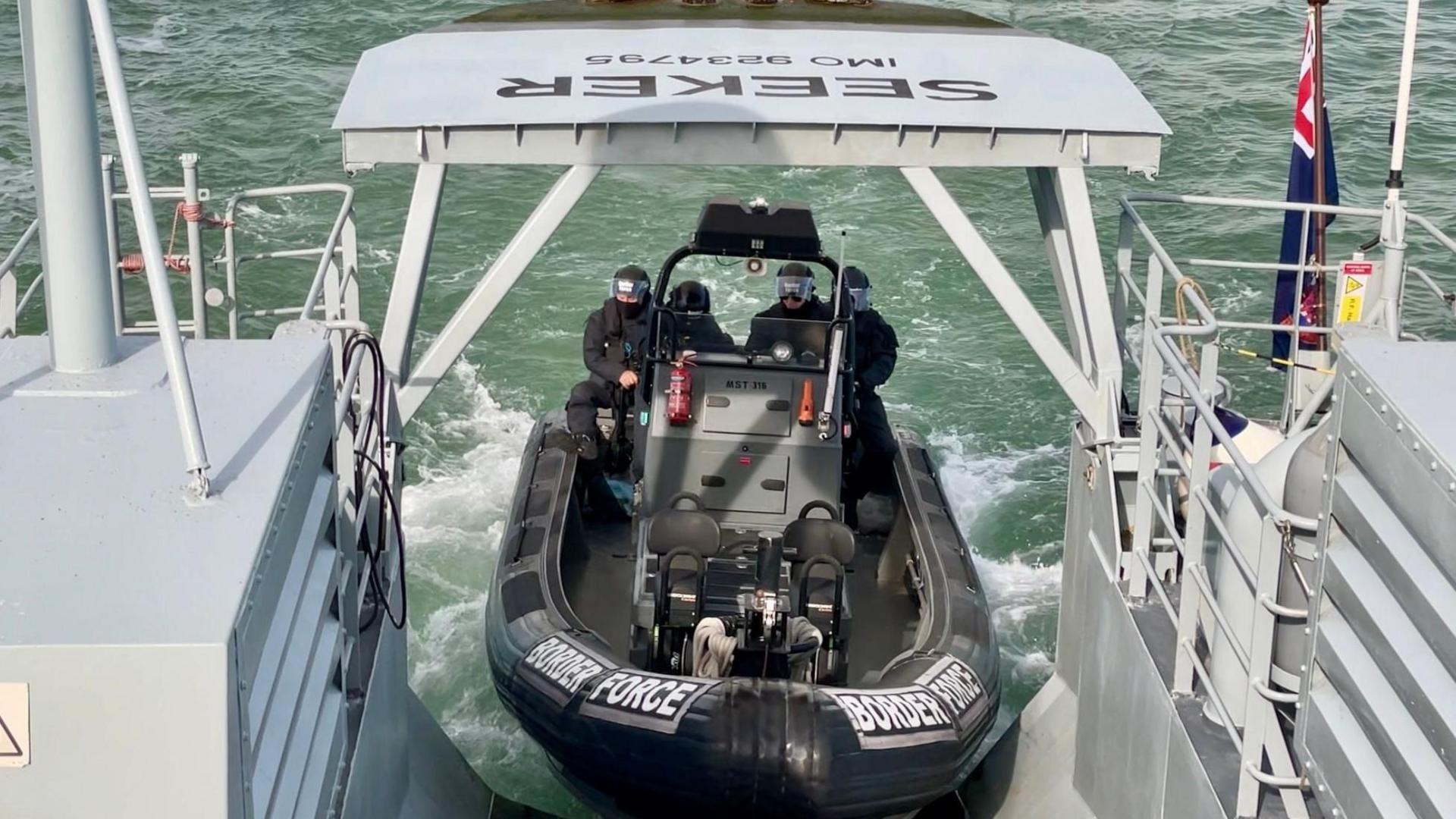
- Published21 March
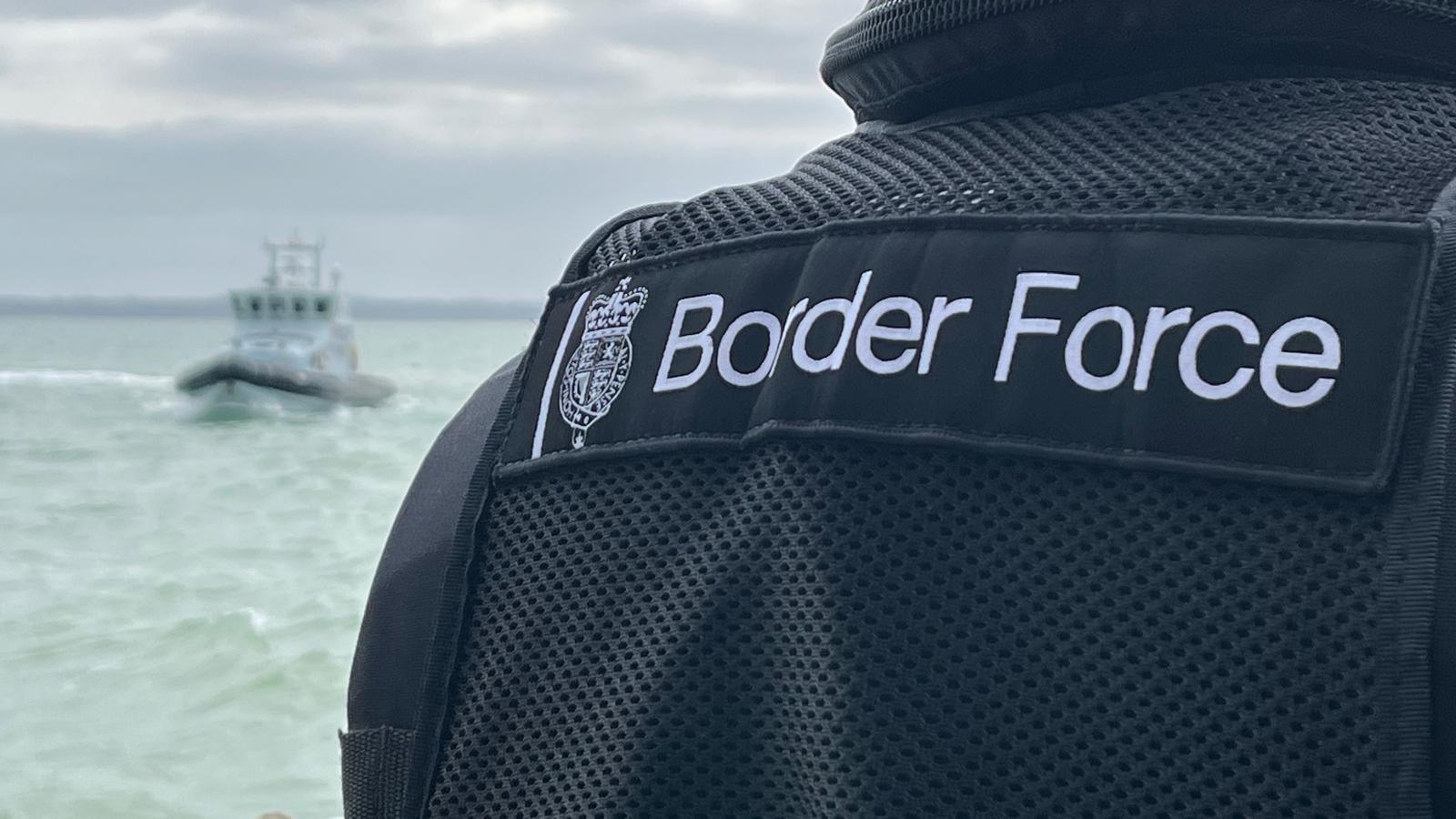
- Published14 May
